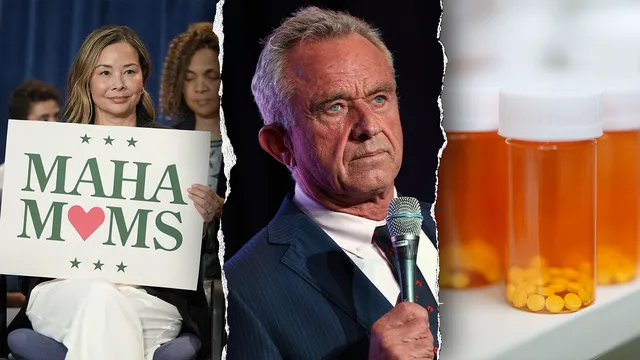
RFK Jr. blames WHO for COVID-19 failures and China's influence
2025-05-22 16:00- Robert F. Kennedy Jr. delivered a video criticizing the WHO's management of the COVID-19 pandemic and its alignment with China's interests.
- The United States officially withdrew from WHO amid concerns over its effectiveness and handling of global health issues.
- Kennedy's failure to have his video aired during the Assembly illustrates the growing divide between U.S. health policy and international cooperation on pandemic preparedness.
Express your sentiment!
Insights
On May 21, 2025, in Geneva, Switzerland, during the World Health Assembly, U.S. Health and Human Services Secretary Robert F. Kennedy Jr. delivered a pre-recorded video outlining his criticisms of the World Health Organization (WHO). He emphasized the organization’s failures in managing the COVID-19 pandemic, claiming that it capitulated to Chinese influence. Kennedy pointed out that the WHO suppressed crucial reports regarding human-to-human transmission early in the pandemic, instead promoting the narrative that the virus originated from wildlife. He expressed discontent over the U.S. withdrawal from WHO, initiated by President Donald Trump due to concerns about the organization's effectiveness and political influences. The video faced controversy as it was not broadcast during the Assembly sessions, despite the airing of messages from other global leaders. Instead, Kennedy's remarks highlighted the longstanding issues within the WHO’s operations, including the perceived conflicts of interest and excessive bureaucratic practices that undermine its ability to serve global public health. Furthermore, while the U.S. sought to distance itself from WHO amidst financial criticisms, China emerged as a significant supporter by pledging an additional $500 million to the organization over the next five years. Chinese Vice Premier Liu Guozhong announced this contribution at the Assembly, indicating China's intent to fill the leadership vacuum left by the U.S. Kennedy called for reforms in WHO and encouraged other nations to join the U.S. in abandoning the organization’s current structure. Despite such statements, WHO member states unified to adopt a pandemic agreement aimed at improving global health security, suggesting a divergence between the U.S. and the global community. This treaty reflected international cooperation after three years of negotiations, underscoring differing perspectives on how to manage future pandemic challenges.
Contexts
The World Health Organization (WHO) pandemic agreement is a pivotal initiative aimed at enhancing global readiness and response to pandemics. Formulated in the aftermath of the COVID-19 pandemic, the agreement lays the groundwork for a coordinated international response to future health emergencies. It emphasizes the necessity of strengthening the global health system by fostering collaboration between nations, non-governmental organizations, and public health entities. Key elements of the agreement include the development of standardized protocols for data sharing, improved access to vaccines and medicines, and the establishment of a comprehensive surveillance system to detect potential outbreaks early. Therefore, it is designed to provide a framework for rapid and equitable response during health crises, thereby minimizing the impact of pandemics on global populations. Another critical aspect of the WHO pandemic agreement is its focus on equity in health resources. The agreement advocates for equal access to medical supplies and technologies across countries, particularly emphasizing support for low- and middle-income nations that often lack the necessary infrastructure to respond effectively to health emergencies. By addressing these disparities, the WHO aims to ensure that all nations can contribute to and benefit from collaborative pandemic response efforts. It reinforces the notion that pandemics do not respect borders and that global collaboration is essential for effective management of health threats. The implementation of the agreement will rely on the commitment of member states to adhere to the set guidelines and to invest in strengthening their local healthcare systems. Regular training and preparedness drills, as well as continuous investment in scientific research, will be crucial under the new framework. The WHO will play an influential role in facilitating these initiatives, providing technical assistance, and ensuring that the needs of all member countries are met through tailored strategies. Additionally, the monitoring and evaluation of response measures will be vital, holding countries accountable for their commitments and enabling continuous improvement based on lessons learned from each pandemic. Ultimately, this WHO pandemic agreement marks a significant step forward in public health cooperation on a global scale. Its success will depend not only on the collaboration of nations but also on the commitment of all stakeholders involved in global health governance. As we approach a future where pandemics are likely to occur, the importance of an established and collaborative framework cannot be overstated. The agreement serves as a beacon of hope, reinforcing the collective responsibility of the international community to safeguard public health and ensure the resilience of health systems across the globe.